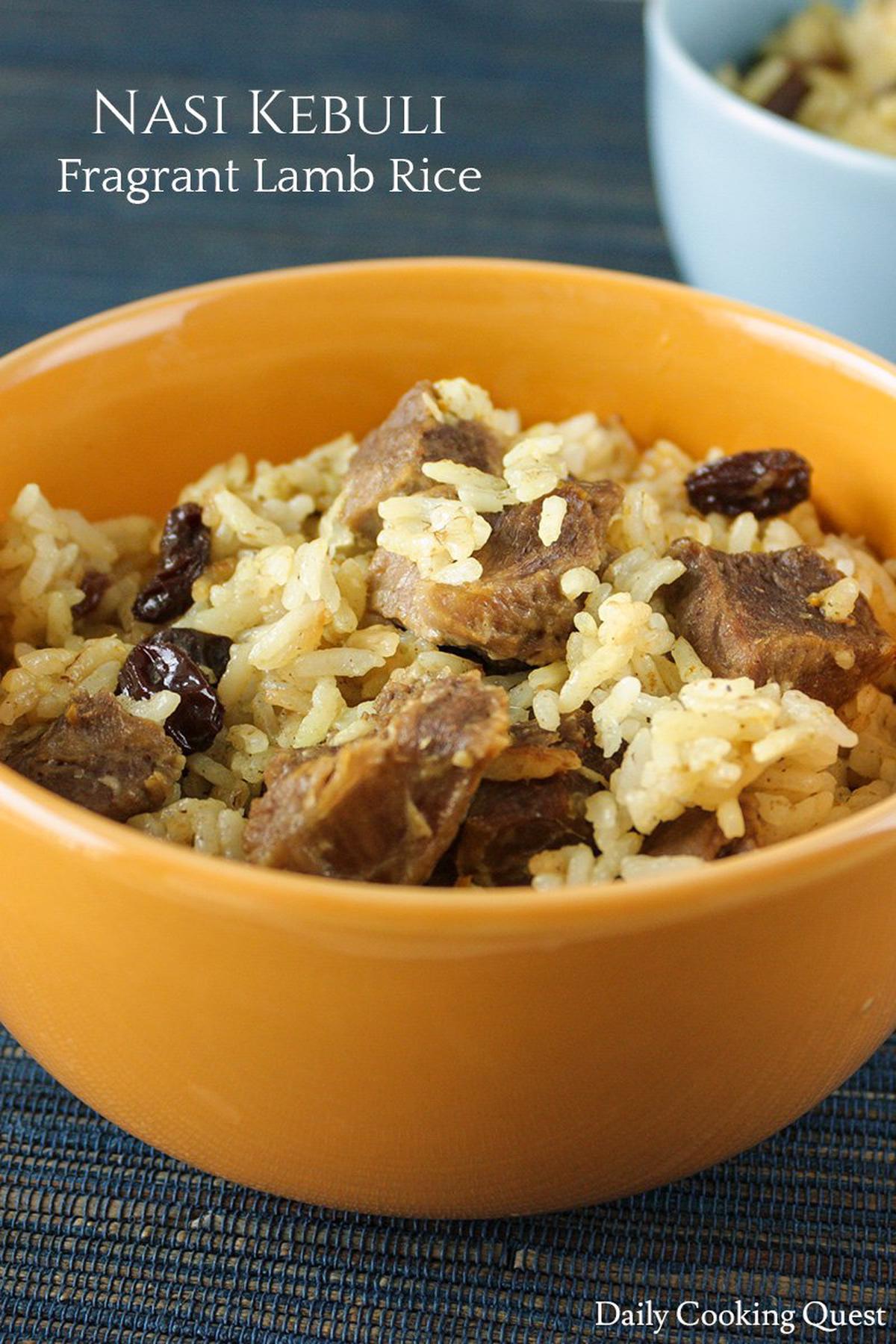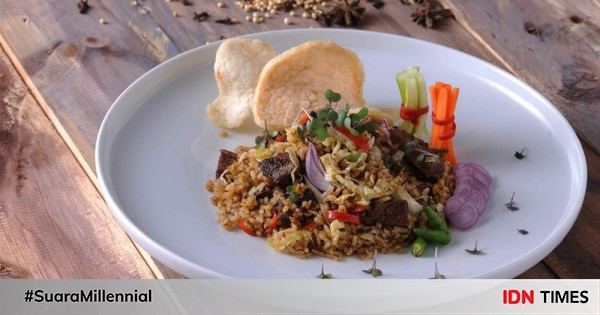Nasi kebuli
Nasi kebuli is an Indonesian variation of pilaf. It consists of rice cooked in goat meat broth, goat milk, and clarified butter (most often ghee). It is popular among the Arab community in Indonesia and Betawi people in Jakarta. Nasi kebuli was influenced by Arab culture and its origin can be traced to Middle eastern cuisine, especially Yemeni Arabian influence (mandi rice or kabsa), Indian cuisine influence (biryani rice), and Afghan influence (kabuli palaw). In Betawi culture, nasi kebuli is usually served during Islamic religious festivities, such as Eid al-Fitr, Eid al-Adha or Mawlid. Outside Jakarta, nasi kebuli is mainly popular in regions with significant population of Arab Indonesians, such as West Java, Banten, Surakarta, Surabaya, Gresik and Banyuwangi. The name kebuli is derived from kabuli palaw, which is an Afghan variety of pilaf, similar to Indian biryani, but with heavy influence of Hadhrami and Indian cuisine such as Mandi and Biryani in the cooking methods and seasoning.
Source: Wikipedia










